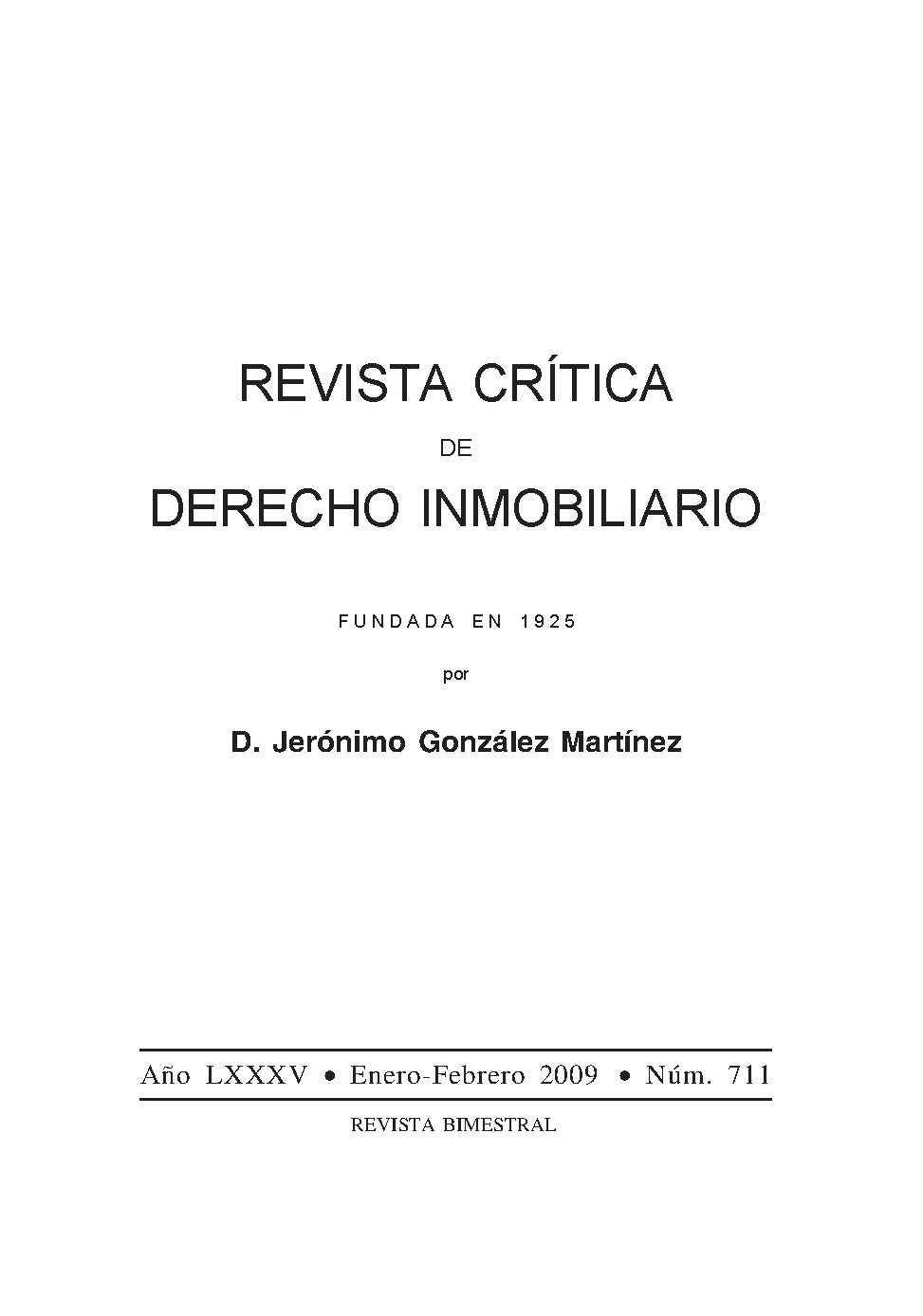LOS PRINCIPIOS GENERALES DE LA LEY 41/2007, DE 7 DE DICIEMBRE, DE MODIFICACIÓN DE LA LEY DEL MERCADO HIPOTECARIO Y OTRAS NORMAS DEL SISTEMA HIPOTECARIO.
Keywords:
MORTGAGEAbstract
Act 41/2007 of 7 December amending the Mortgage Market Act and other mortgage-system legislation lent greater flexibility to the traditional principles of accessory relationship and specificity of parties in mortgages made with financial institutions. The act's declared intent was to make financing instruments more flexible and to enable financial institutions to increase their mortgage-secured products. With that intent, the act did several things in particular: It introduced something called an «hipoteca global» or «hipoteca flotante» (a mortgage up to a maximum amount, secured by existing property, for several debts, some of which might not yet exist); it enabled discussion of the possibility of introducing «rechargeable mortgages»; and it amended some terms of the Mortgage Act (articles 12, 130 and 149). Because of the faulty wording of some terms and the lack of coordination with other laws (a case in point, the Civil Proceeding Act), some key aspects of the reform have given rise at first to a number of different interpretations. Although it is hard to predict what practices financial institutions will take up and what success some of the concepts introduced by Act 41/2007 will have, this paper focuses on the new regulation's impact on the legal situation of the lender, the borrower and other interested third parties, especially in foreclosure. Also, secondarily, this paper addresses the act's consequences in terms of the guarantees backing mortgagemarket securities.









